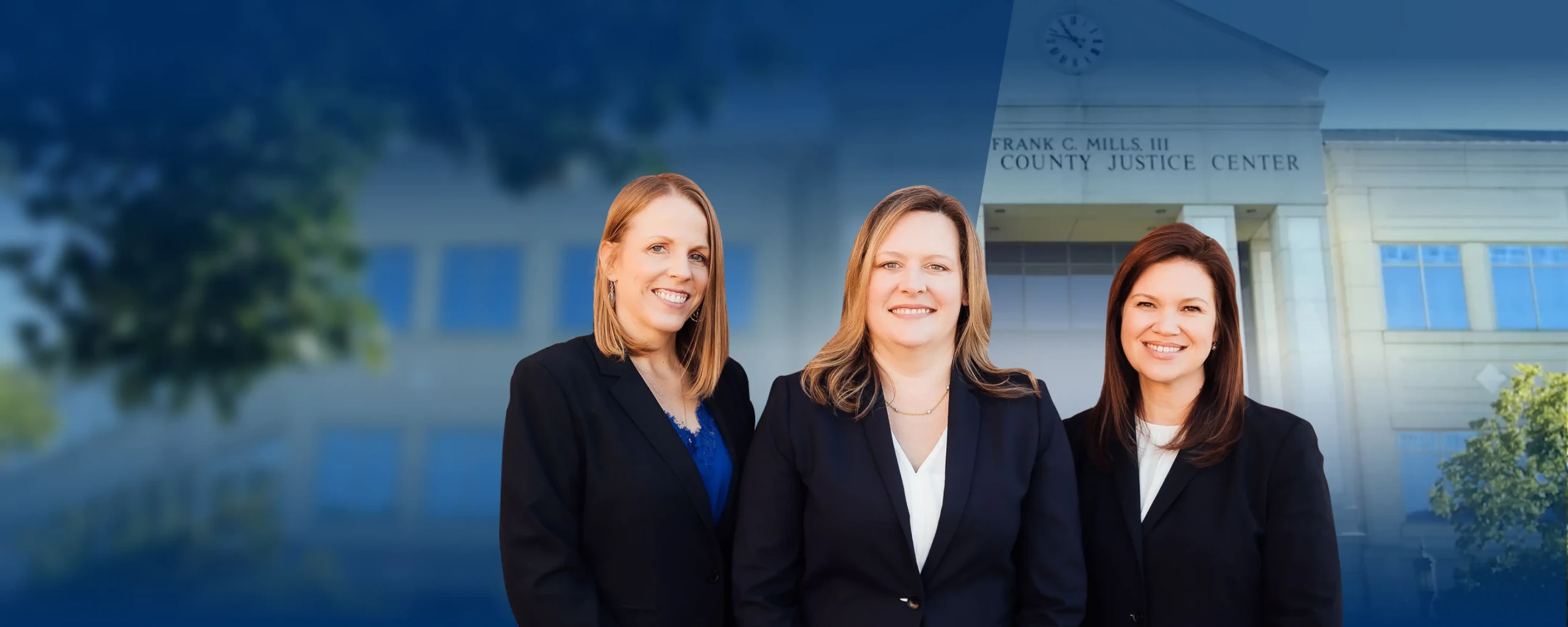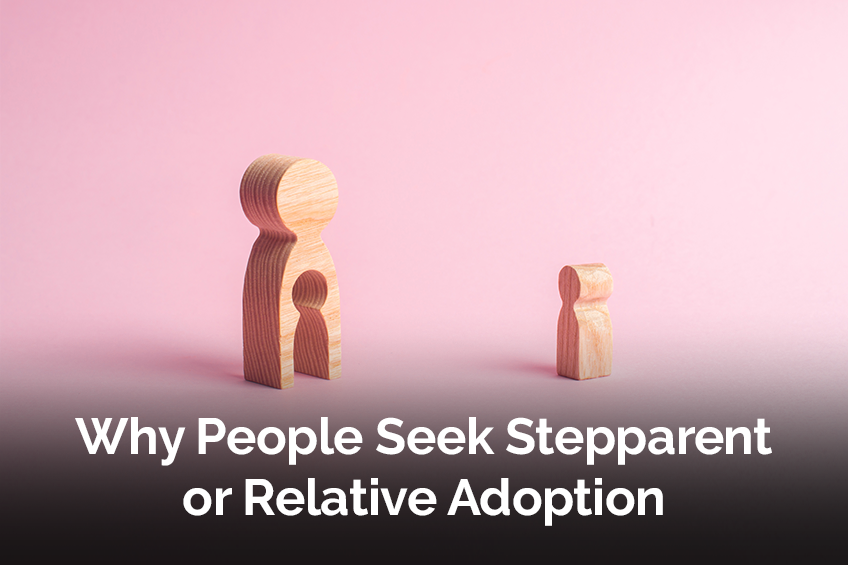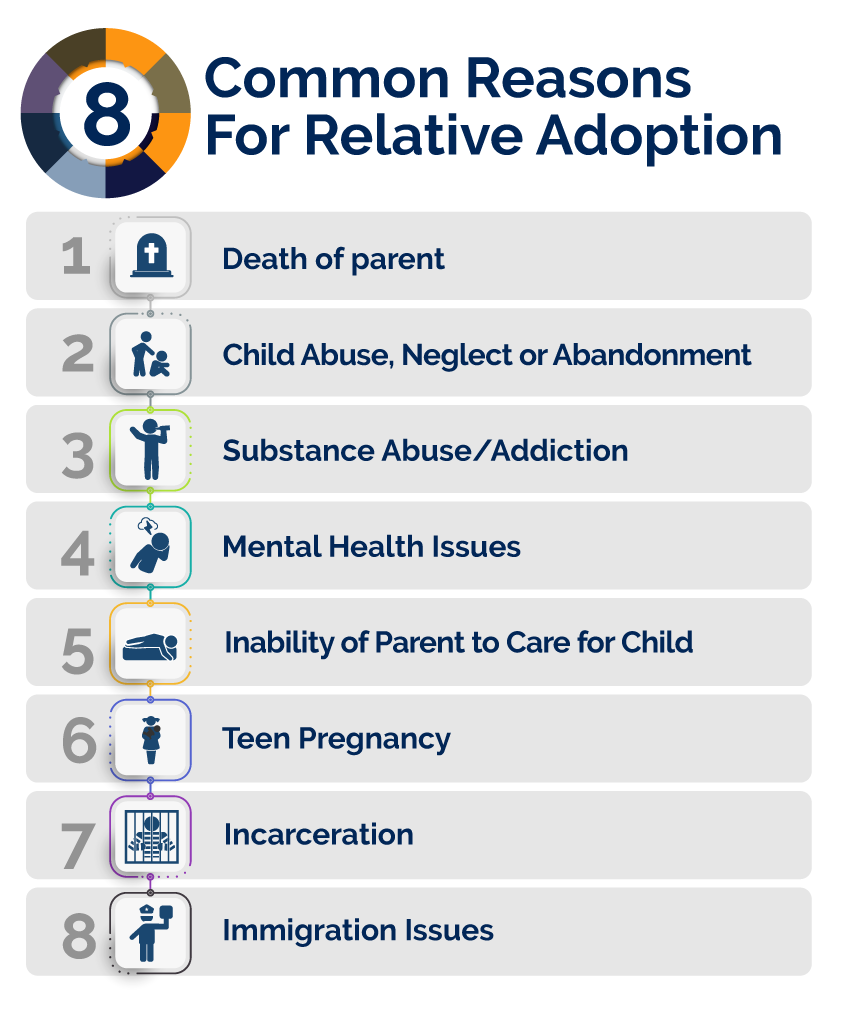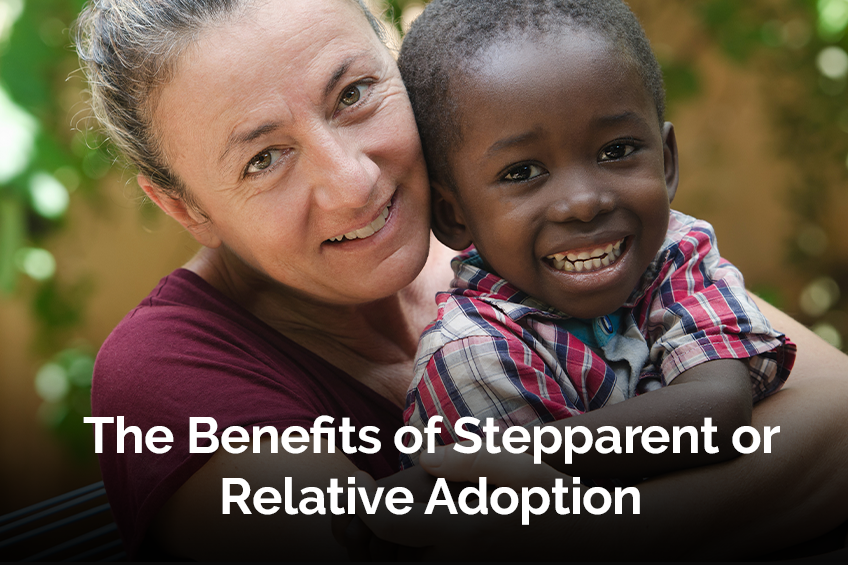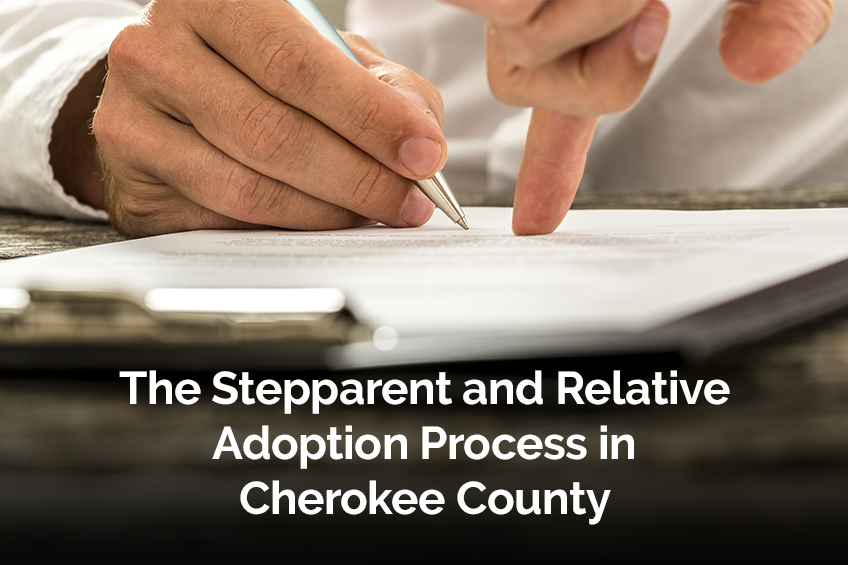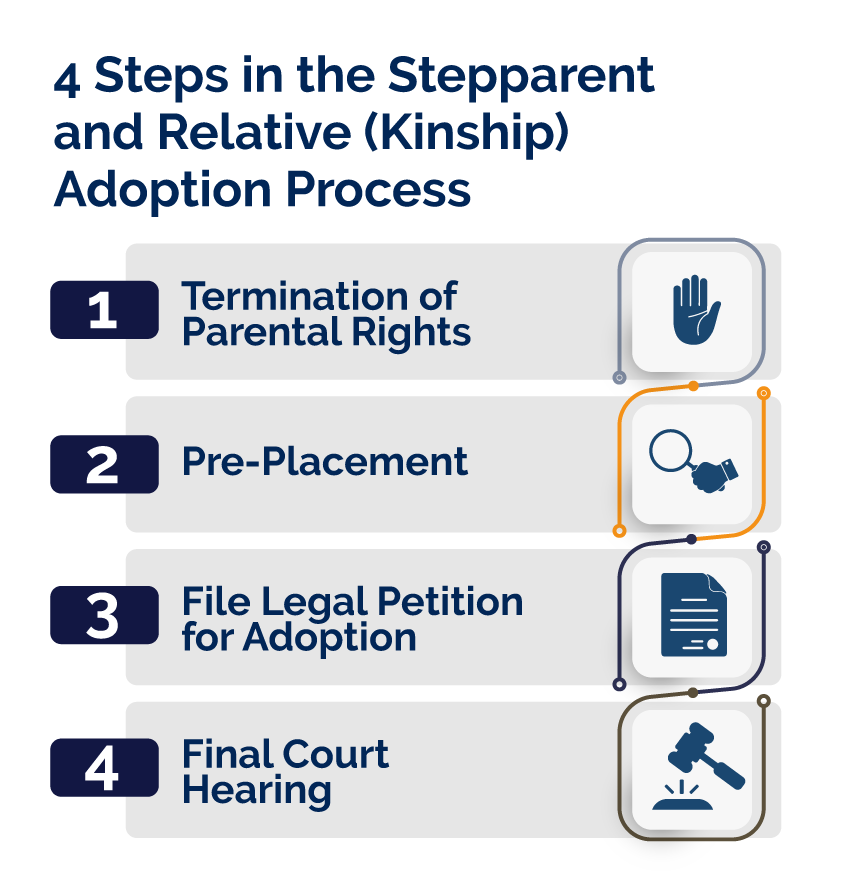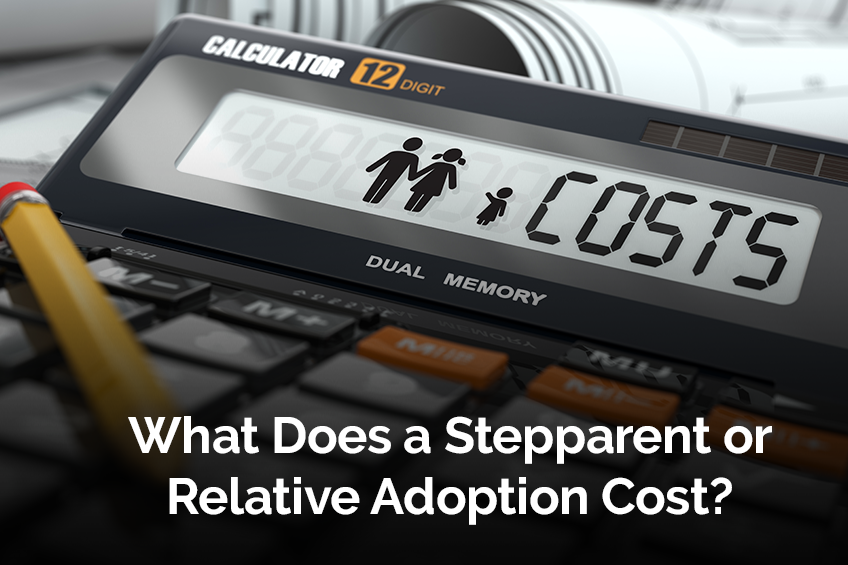
Most people don’t ever expect to find themselves adopting a step child or younger family member, but sometimes, adverse circumstances may make these adoptions necessary or simply the best choice for the welfare of a child.
Adoption by a stepparent or spouse of the legal parent is known as a stepparent adoption.
Adoptions by close family members related by blood or marriage are known as relative adoptions. They are also sometimes referred to as kinship adoptions or family adoptions.
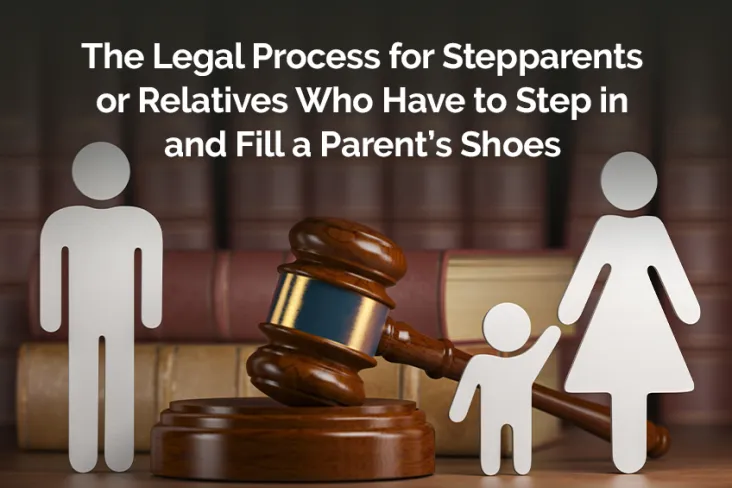
The Legal Process for Stepparents or Relatives Who Have to Step in and Fill a Parent’s Shoes
Georgia adoption law defines a stepparent adoption as an adoption by the spouse of either parent. There is no requirement as to the length of the marriage between the parent and their new spouse.
A relative adoption is an adoption by a grandparent, great grandparent, aunt, uncle, great aunt, great uncle or sibling of a child. Any other relative by blood or marriage – including cousins – will need to file for another type of adoption.
To be eligible to adopt a stepchild in Georgia, the stepparent must be a Georgia resident, at least 21 years of age and married to the parent of the child.
To be eligible to adopt a related child in Georgia, the relative must be a Georgia resident, be at least 21years old, and be able to care for the child. If married, they must also adopt the child with their spouse.
A 2018 Georgia law change eliminated the 10-year age difference requirement for stepparent and relative adoptions and reduced the minimum age and 6-month residency requirement, making stepparent and relative adoptions slightly less prohibitive.
Stepparent and Relative adoptions can be somewhat easier and less complicated than other types of adoptions, as Georgia laws regarding them are a bit less strict.
Complex legal issues can and often do arise, however, so it’s important to seek experienced legal representation.
Why People Seek Stepparent or Relative Adoption
The decision to file for stepparent or relative adoption often comes after a period of caring for the child. Relative adoption may also be used to adopt a relative’s baby upon or shortly after birth.
Adoption confers full parental rights on the adoptive parents and terminates those of any living parents.
Some Common Reasons for Relative Adoption Include
Death of parent: Relative adoptions can keep a child out of foster care and in a somewhat familiar environment if the parent(s) should pass away.
Child Abuse, Neglect or Abandonment: If the child is in an unsafe environment, relatives may seek to have them removed and placed into their care, with relative adoption being a possible next step in the absence of reform. Child abandonment is another common reason for these adoptions.
Substance Abuse/Addiction: Dependence on alcohol or drugs can seriously impair a parent’s ability to care for a child. Repeated and failed attempts at recovery may mean family members have to assume care for the child.
Mental Health Issues: Longstanding or newly developed mental health challenges may lead to a need for close family to take on the permanent responsibility of raising a child.
Inability of Parent to Care for Child: Physical health issues, financial issues or even work obligations can prevent a parent from properly caring for their child. Hardships like illness/disability, job loss or homelessness are unfortunate but not uncommon reasons for relative guardianships and adoptions.
Teen Pregnancy: Families faced with a teen pregnancy sometimes choose to adopt the baby to ensure its safety and proper upbringing as well as the well-being of the young mother.
Incarceration: Parents facing long jail sentences may choose to have their child adopted by family members.
Immigration Issues: Cases sometimes occur where the parent of an underage US citizen is deported, or families may seek to adopt a relative child living in another country.
The Benefits of Stepparent or Relative Adoption
Formalizing a care arrangement through stepparent or relative adoption can provide stability, security and a sense of inclusion for the child. Adoption by a stepparent or relative can also help preserve the family bond and allow the child to be raised in familiar cultural or religious traditions.
Adoption can make looking after the child’s basic needs easier, too, allowing the adopting stepparent or relatives to enroll them in school, authorize medical care and make important decisions about care and upbringing. It also ensures the child can receive financial benefits from them like insurance and inheritances.
Adoption differs from legal guardianship in that it is permanent, severs all parental rights and allows the child to inherit from the adoptive parents. Furthermore, in an adoption, the biological parents are relieved of any child support obligations.
The Stepparent and Relative Adoption Process in Cherokee County
Adoptions are very paperwork intensive. A law firm experienced in stepparent and relative adoptions should assist you through every step of the process and ensure that everything gets done in a correct and timely manner. A knowledgeable family law attorney can also help your family navigate the complexities of a difficult case.
Steps in the Stepparent and Relative (Kinship) Adoption Process
Termination of Parental Rights: Parent(s) must consent to surrender parental rights, or the petitioner must show why the parent deserves to have their rights terminated. Both parents must have rights terminated if living.
Pre-Placement: Usually a home study is required for adoption, but in Georgia, the court may agree to waive this for stepparent and relative adoptions. In that case, a simple investigation will be performed. Your lawyer can petition the court for a simple investigation and help you prepare for it.
File Legal Petition for Adoption: Completing the necessary legal forms and filing them with the court.
Final Court Hearing: In Georgia, a court hearing is necessary to finalize a relative adoption.
Many families worry about the costs of obtaining legal representation, but the good news is that stepparent and relative adoptions are often simpler and faster than other kinds of adoptions, so the legal fees are generally less. Be sure to talk to any attorney you’re considering about expected costs and financing options before you hire.
In relative adoptions, there may also be ways to defray the costs of your adoption, including federal adoption tax credits and assistance programs. You may be eligible for state subsidies if you’re adopting a child in foster care (ideal for kinship foster caregivers) or one with special needs. Low-interest loans and employer assistance programs may be other options to explore.
Need Help Filing for Stepparent or Relative Adoption, or Just Have Questions?
We’re here to help you. Adopting a child who’s a stepchild or relative can be an emotional process, and the legal proceedings require know-how and expertise.
Canton attorney Amanda Speights is an expert in family law, with years of experience advocating for children and families in Cherokee County. Call us at (770) 479-1500 to set up a confidential and consultation today. We are available nights and weekends to help you.

